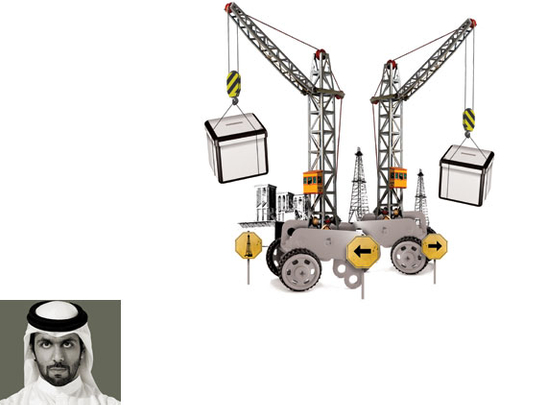
It has become fashionable of late to juxtapose the Kuwait and Dubai models; the former as an aspirational beacon of political participation in the Gulf, and the latter as a successful post-oil development attempt.
The comparison usually concludes that democracy and development are negatively correlated. But what is the relationship between democracy and development in the Gulf?
Khaliji state capitalists will note that democracy has an adverse effect on development and will readily cite Kuwait anointing it the poster boy of a state gone wrong via democracy.
On the opposing side, there are those who cite Kuwait in the sixties, seventies and a substantial part of the eighties when its leadership in development, business, foreign aid and cultural production afforded it a soft power influence many times its counterparts.
Ironically, Dubai has achieved similar soft power strength rather differently. While Kuwait gave Khalijis contemporary cultural depth and a disposition towards self-criticism, Dubai proved to them that they — and Arabs in general — were not destined to failure and that hard work that rejected notions of the Arab curse and conspiracy theory would bear fruit. In short, Dubai raised the bar of the Khalijis' own expectations of their cities.
But one cannot compare Kuwait and Dubai in abstract. There are genuine state specific differences between the two.
Due to the unique circumstances by which they have come to power, the House of Al Sabah's relationship to the state and its people differs completely from that of any other ruling family. This makes the current political system in Kuwait a functional necessity rather than a cosmetic luxury.
It's important to point out that Kuwait's political system is quite a hybrid one. So while it's in principle a parliamentary system, elections are limited to 50 of 65 seats; the Emir of Kuwait appoints the remaining 15. Those form 15 of the 16-member cabinet, the 16th is ceremonially chosen from the parliament's 50 elected members.
This arrangement has more often than not pitted the parliament against the cabinet which effectively ensured a continuous state of crises. It is important for proponents and critics of democracy in the Gulf to be nuanced of this specificity when referring to Kuwait as a democracy.
The abundance of oil in Kuwait and its near lack in Dubai required the latter to pursue a policy of revenue diversification while the former became a welfarist rentier state.
It seems that the Kuwait and Dubai models are effectively incomparable and do not serve as adequate reference points of democracy gone wrong or benevolent state capitalism gone right because it grossly ignores the specificity of both. Dubai's accelerated economic development is driven by internal realities such as limited natural resources and a heritage of trade that precedes its discovery of oil.
Kuwait's deceleration was driven by a crisis-prone hybrid political system that was meant to balance the interests of the ruling family and people but has really antagonised both. The expansion of the welfare state and inefficient size of government is a direct result of this continuous reality of out-of-crisis/into-crisis and ill-fated attempts to buy the public's political apathy. One also cannot underestimate just how much the Iraqi invasion was a setback to Kuwait; it literally reset the country and forced it to change its priorities.
Declining competitiveness
Whether a proponent or a critic, relating Kuwait's state of affairs to the application of (hybrid) democracy there or its absence in Dubai is similar to holding democracy responsible for the economic crisis in the US and the consistent squeezing of its middle class or the Eurozone crisis and the declining competitiveness of much of Europe's manufacturing base. Bringing things closer to home, there is no short supply of Arab states that haven't pursued a democratic path but have failed to achieve what Dubai has.
The nature of the relationship between development and democracy is closer to being neutral than anything else. Democracy shouldn't be given more credit than its due or held accountable for what it does not have a direct effect on. It isn't a facilitator nor an inhibitor of development.
Development is the product of thorough planning and dynamic execution. If anything, it is more susceptible to oil wealth and welfarism than anything else … even if that was a well-functioning democracy.
Mishaal Al Gergawi is an Emirati current affairs commentator. You can follow him on Twitter at www.twitter.com/algergawi








